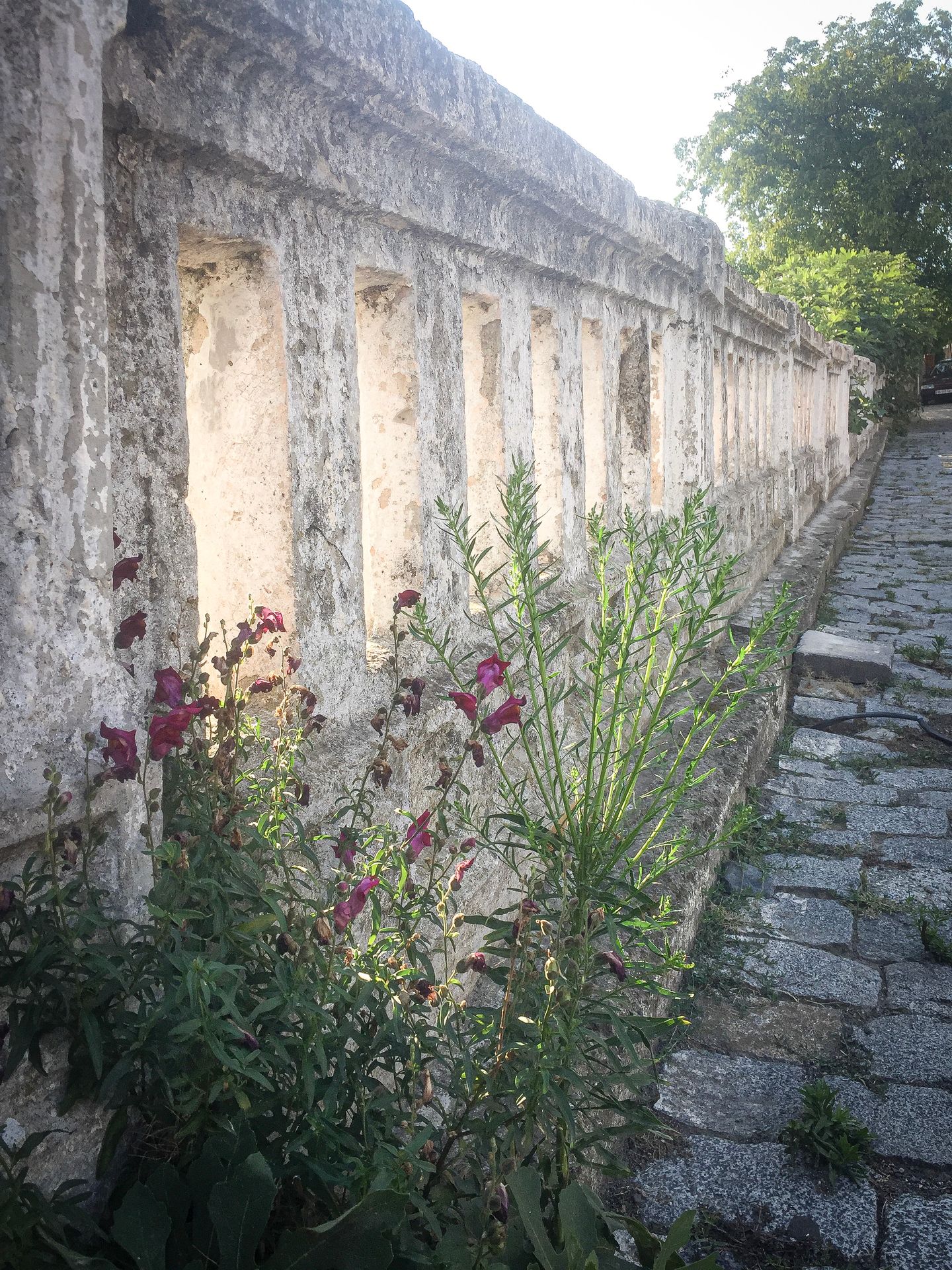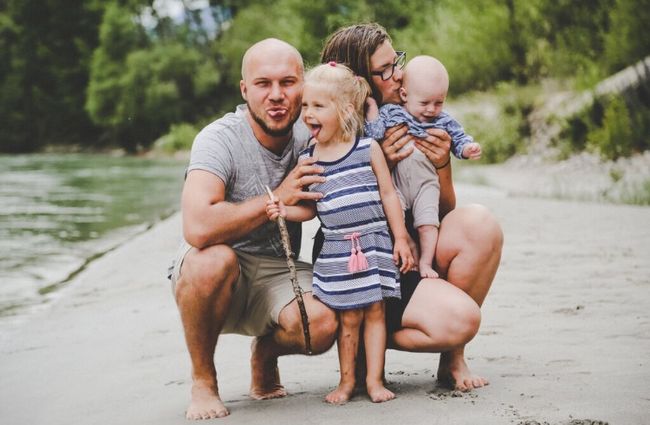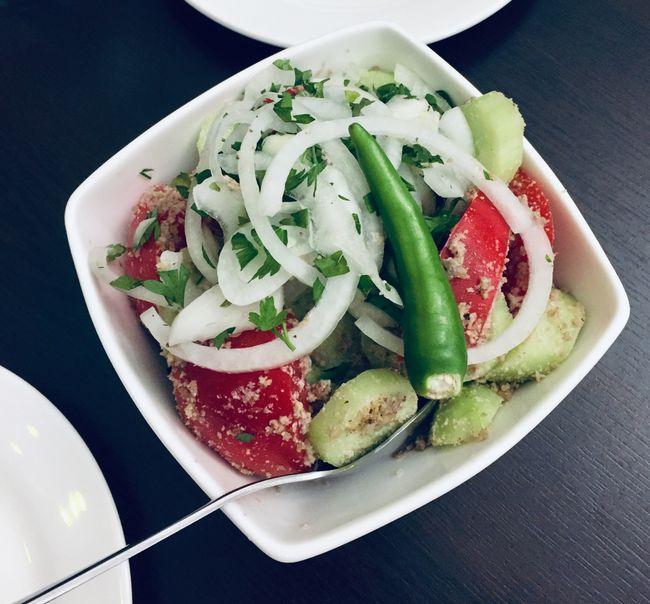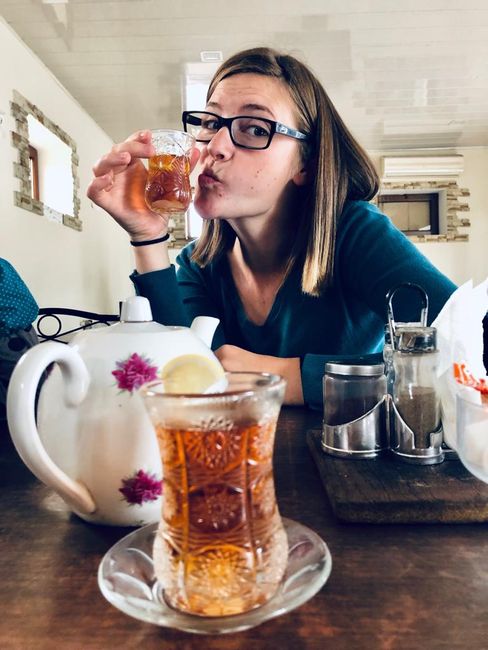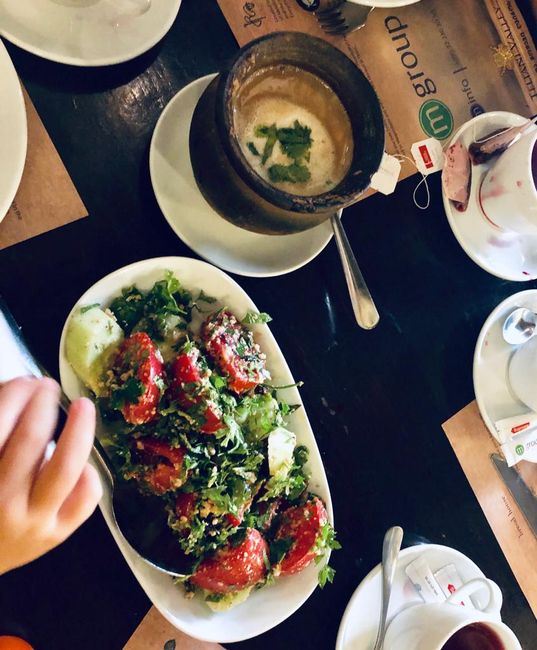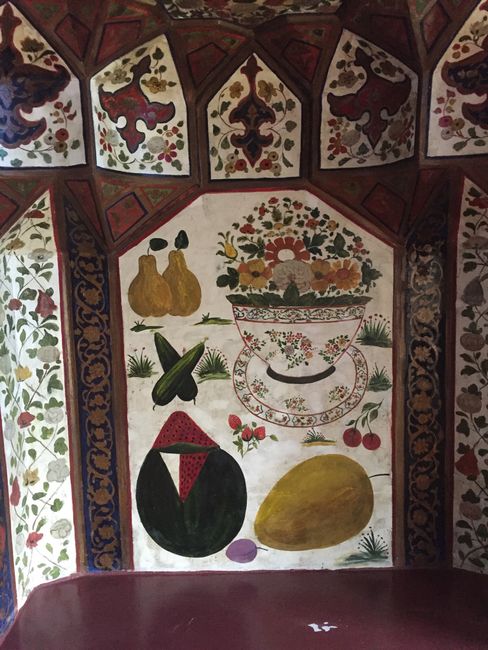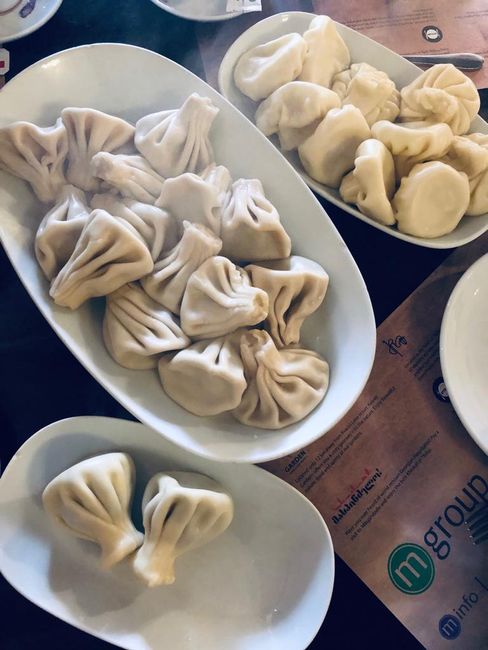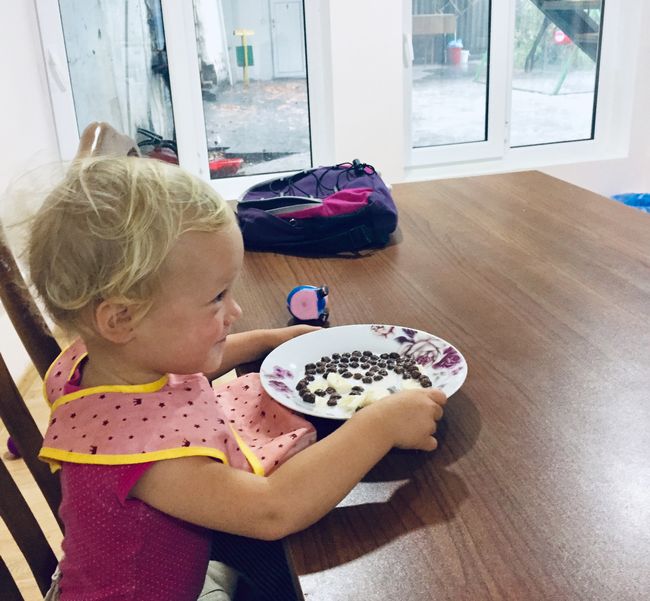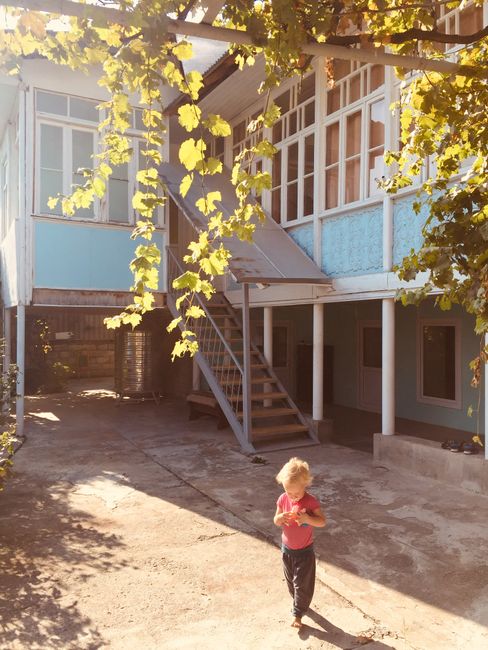Food and Other Acts of Love
MIVOAKA: 10.09.2019
Misoratra anarana amin'ny Newsletter
Those who know us know that we can eat. A lot. And we enjoy eating. The conflict in our family is: while the only male representative of our family can consume incredible amounts like a camel and withstand periods of hunger without being affected, all the women just need regular meals. And for lunch, preferably something hearty and filling. Fortunately, that's not a problem here in the Caucasus - hearty and satisfying? We can do that.
In the past few weeks, we have tried incredibly delicious dishes. The ingredients here are, on the one hand, what we know as Mediterranean: eggplants, tomatoes and cucumbers, beans and lots of white, very tasty bread. We also enjoy being in countries where raw onions and lots of garlic are a given. But there are also typical ingredients known from mountain regions: milk, fat, and loads of cheese. In everything, on everything. With everything.
And this combination is simply very, very delicious. Unfortunately, our children don't always see it that way. Actually, most of the time they don't. That's why we have developed our own eating rhythm, so that we all feel like eating and get full.

While many people we meet here have breakfast late in the day and, if they do, it's savory, we start our day with Kellogg's. Our children have already devoured kilos of chocolate flakes and crunchy pirate heads. It makes them happy and it makes us happy. As adults, we indulge in a sweet bread meal and are quite content with that. In this aspect, we haven't adapted much to the local culture and celebrate a little slice of German culture with Nutella and milk.
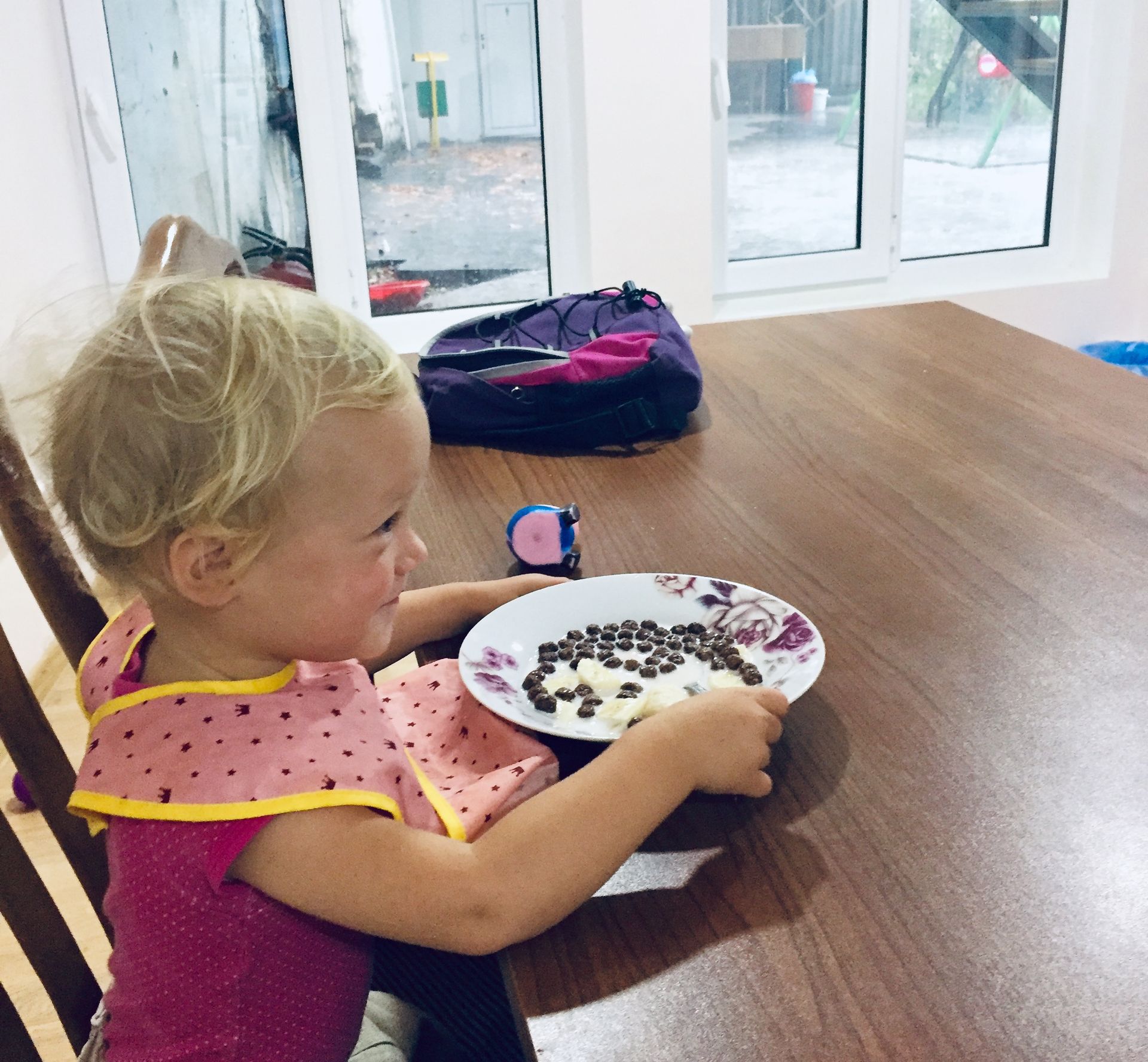
Around 12 o'clock, everyone gets really hungry - because a little Kellogg's and a bite of bread don't really fill you up. Either we have a big meal then, or - on hot days - we eat like the other people here, with fruit. It's incredible how fresh and flavorful the fruit is here. Looking back, it seems crazy how many unripe and watery fruits we bought in Swiss supermarkets and thought we were doing our bodies good. Here, the fruits taste like they should. Many older women sell what they or their neighbors have grown somewhere on the streets. And even the fruits in the many small kiosks are just as fresh. And so we are filled with watermelon, grapes, figs, and peaches, and we enjoy it.
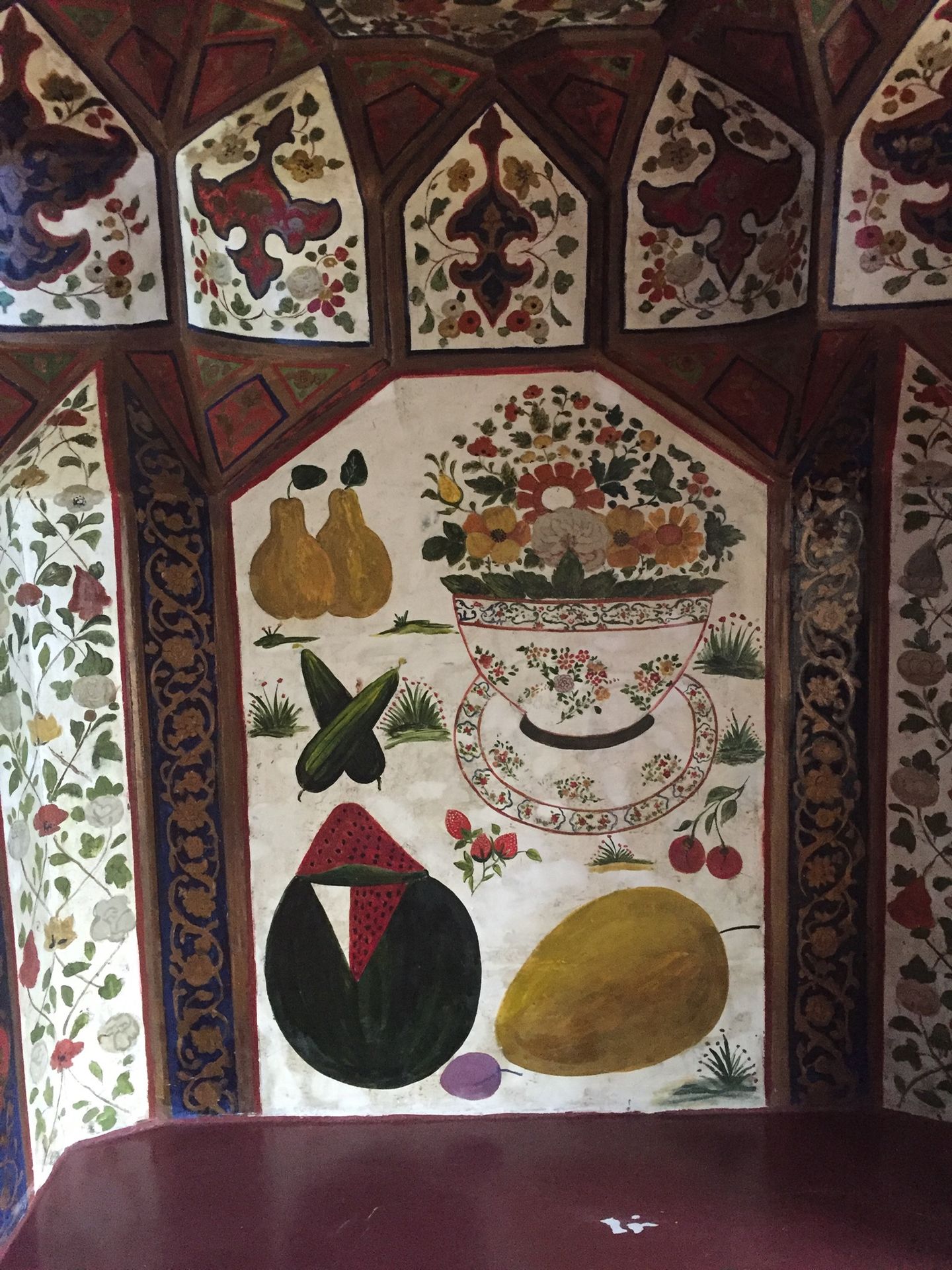
At some point, it's time for a hot meal. Depending on our mood, we either cook ourselves in our accommodation or go to a restaurant. Usually, we buy several dishes and each of us eats what they like best.
Our absolute favorite is Khinkali. We discovered them in Georgia. We have known for a long time that dumplings filled with minced meat or potatoes are delicious, whether it's Manti, Pelmeni, or Piroschki from any cultural background. But Khinkali, the Caucasian version, takes it to a whole new level for us.
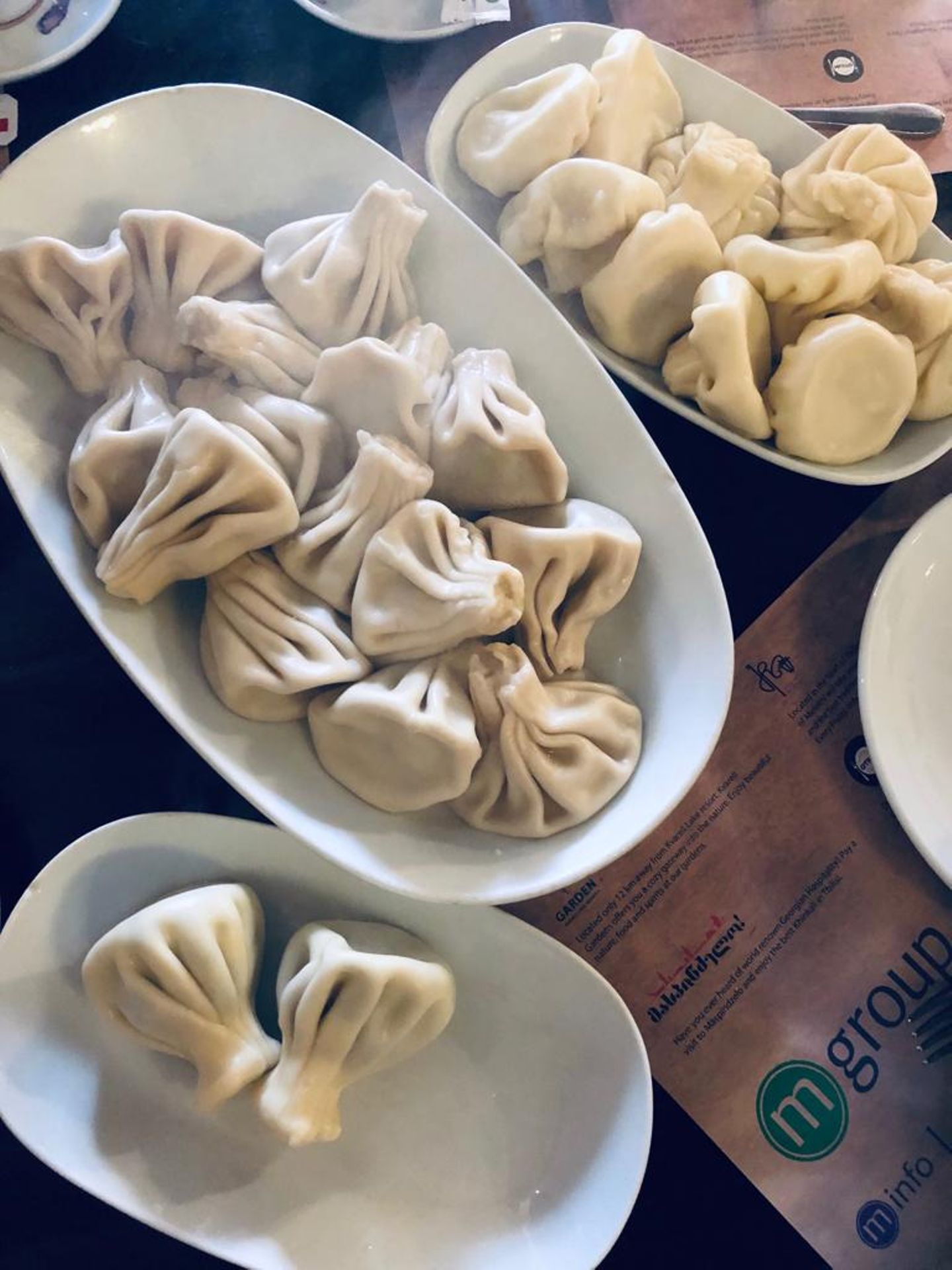
You hold them by an integrated handle and then suck out the filling with pleasure. As I said - a good thing. In all our back-and-forth movements through the Caucasus - Georgia, Azerbaijan, Armenia - we cross paths in Tbilisi, the capital of Georgia, every two weeks. Due to the complicated political situation, many border crossings are closed and you can't take the shortest route, but the one that is accessible to ordinary people. However, we look forward to it because Tbilisi offers an incredible variety of delicious food and we especially look for restaurants that offer homemade Khinkali.
Unfortunately, our children are not particularly fond of many dishes we come across on menus here. They would rather just eat fries, occasional plain cucumbers, or spaghetti with ketchup. They tend to eat more when we cook at home. And so, often mixed in one pot, we have rice with tomato sauce or spaghetti. And very satisfied children's faces.
Sometimes it's also fortunate for us that our children scrutinize certain foods very critically and refuse to eat them. Because it can happen very quickly that you have a stomachache the next day. It has happened to us twice already that we had spoiled food, both times after eating at local people's homes. And both times, only the adults were affected because the children didn't touch anything except sweets and watermelon. The lucky ones.
And so a week in northern Azerbaijan passed with a bit of a hospital atmosphere. That's the good thing about our style of travel: we can take a break when we need it. We slept a lot, read, ran to the toilet, and drank lots of tea.

We were not at all in the mood for long exploratory trips or encounters with people. We just wanted to recuperate. The mere thought of delicious soups, Azerbaijani and very tasty Lahmacun 'Lavash', or stuffed grape leaves caused stomach cramps. After a week and a visit to the local pharmacy, we both felt better again and the desire for the foreign culture, for small talk, and above all - for food - returned. Because food is more than just nourishment. It connects, it moves, it communicates.
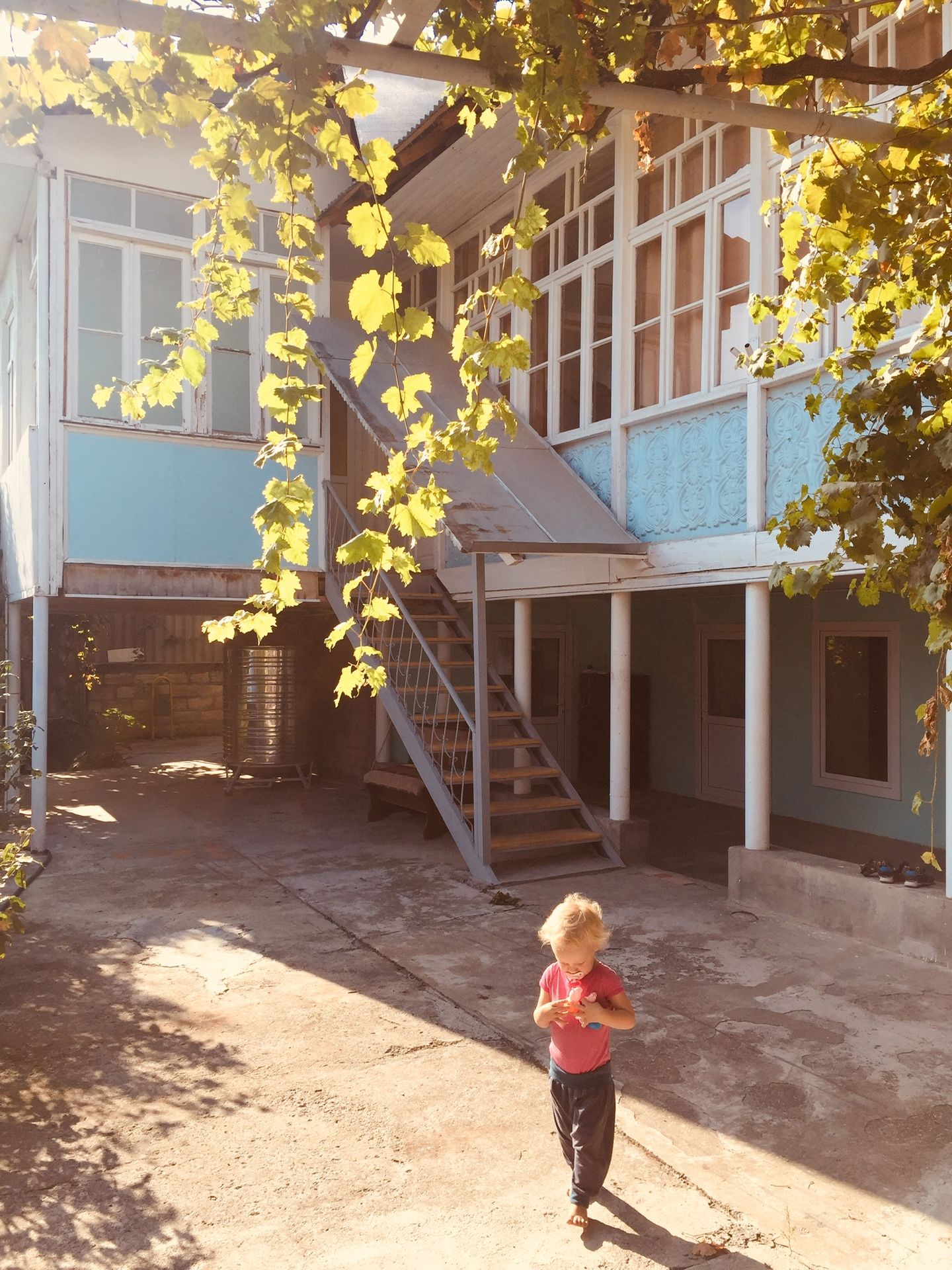
Finally, we were excited to try new things again and continued our journey. Our path led to Tbilisi - and there to the obligatory Khinkali orgy - and then to Armenia. Our arrival in the capital was late in the evening, with two tired children, everyone a little rumpled and hungry from the journey. That's when we became victims of selfless hospitality and love for children. Several strangers gave us so much bread, sweets, and fruits on the street and in our accommodation that we could actually eat from it for 2 days. Our children beamed with gratitude and we didn't know where to put all these gifts.
Food is more than just nourishment. It is a language that our hearts understand. And our hearts say: Thank you!
Misoratra anarana amin'ny Newsletter
Valio
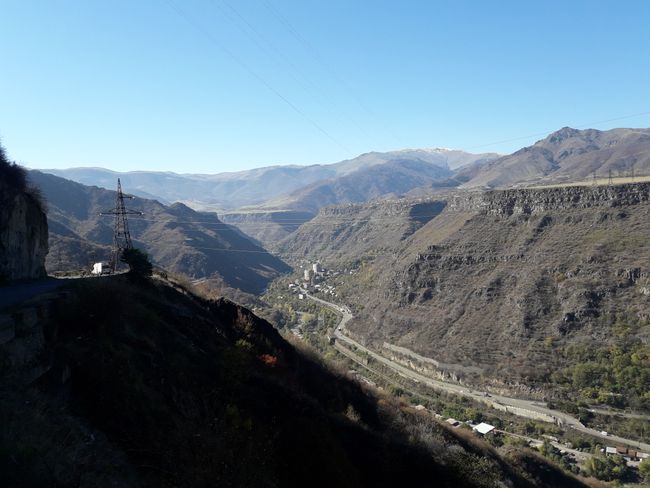
Tatitra momba ny dia Armenia
